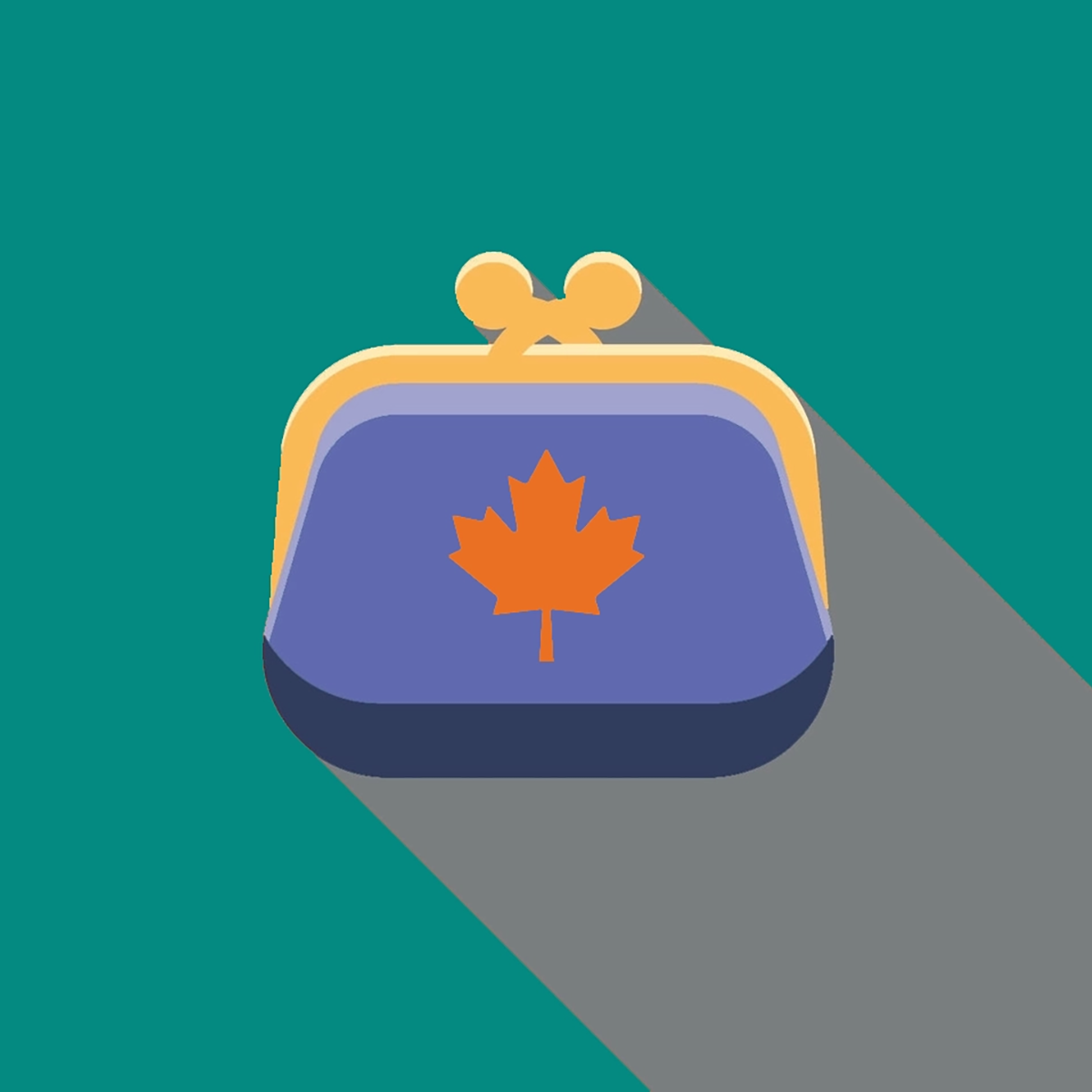Winning words of financial wisdom
What do professional chefs, athletes and artists have in common?
Talent, to be sure, but also an entrepreneurial spirit, and a dedication to pursuing a dream that probably didn't always seem within reach.
The roadblocks they encountered, financial or otherwise, and the ways they navigated around them, can offer lessons.
That's why we decided to seek financial perspectives not from money experts, but from a handful of exceptional Canadians we suspect have some hard-earned words of wisdom to share.
Each one shares the one piece of advice they'd give to their younger selves – a dose of rear-view wisdom from which many of us could benefit.

“You need to sacrifice a short time to enjoy life without any financial stress for a long time.”
Nav Bhatia, businessman, philanthropist, Toronto Raptors “Superfan“
“I went through many speed bumps,“ Bhatia says of the early part of his career in Canada after immigrating from India in 1984. He persevered over the years, he says, by “working hard and treating everyone how I want to be treated.“
Advice to his younger self: “I wish I had told myself, Nav, you don't need fancy clothes and cars. You need to sacrifice a short time to enjoy life without any financial stress for a long time. I came here with nothing and every penny made was a penny earned, but I wish I had avoided a few purchases that satisfied my ego more than my bank account. There ended up being plenty of time to enjoy the finer things in life, but I could have gotten there sooner.“

“Always pay yourself first.”
Kia Nurse, WNBA player, Tangerine Champion
“I read The Wealthy Barber when I was first starting to make some actual money, and it made a lot of sense to me. It was really practical and an easy read,“ the Phoenix Mercury player says.
Advice to her younger self: One tip from the bestselling book still resonates. “When you get a pay cheque from anything, pay 10 percent to your savings first.“
“That was the big one for me,“ Nurse says. “Take a percentage, put it away, and then you'll never think about it. So that every month when you get that cheque, that percentage is already gone, and you're like, oh, this is normal, this is my cheque. But you're actually saving.“

“Don't be afraid to fail.”
Christine Cushing, Chef and Food Producer, Christine Cushing Artisan Products. Hosted Christine Cushing Live (Food Network), Fearless in the Kitchen (OWN) and Confucius Was a Foodie (PBS).
Cushing has been cooking professionally for nearly 30 years. When things got tough in the early days, she says she'd ask herself, “Am I still enjoying the journey?“ If the answer was no, she found another road so she could continue to share her love of food. That led her to a thriving career of TV hosting and food manufacturing.
“TV allowed me to combine my love of cooking with my love of language, and I discovered that I am actually better at inspiring or empowering others to cook. I also made every single day a unique journey,“ explains Cushing.
Advice to her younger self: Don't be afraid to fail. “So-called failure will teach you infinitely more than you can imagine and will push you past the limits you think you can achieve.“
She adds, “Make sure you mark every great accomplishment before looking for the next mountain to climb!“
—Mary Luz Mejia

“Shop around.”
Aaron O'Bryan, celebrity hairstylist
You'd think being a hairstylist to celebrities like Marilyn Denis, as well as being a regular on her show and Your Morning would have Aaron O'Bryan, owner of Toronto's Cellar Salon, sitting on his laurels.
Even a growing fanbase and a bustling salon wasn't enough for him. Aaron launched his hairstyling line AOB Products at the height of the pandemic. Success was made possible by lessons he learned along the way.
“One of the main roadblocks that I have encountered along the way was spending money on unnecessary items,“ O'Bryan says. “Burning through money, I splurged on many items throughout the years, only shopping for the very best or what I thought was necessary for my business. In hindsight I realized that was a major waste of money.“
Advice for his younger self: “Shop around. There's nothing wrong with finding a better deal — you don't need to purchase the absolute best. The true meaning of success is a healthy and growing bank balance that will secure a bright future.“
—Kelley Keehn

“Stick to your vision.”
Craig Wong, Chef/Owner of Patois and Bar Mignonette in Toronto, and Ting Irie in Dubai. Host of Cook Like a Chef and Combination Plates on CTV.
With limited capital, Wong learned to prioritize needs over wants – a tough task for a self-proclaimed perfectionist.
“I had to really think about the best way to spend my limited capital and always asked myself, what's the main objective here? You have to consider this carefully, or you'll lose your shirt!“
Advice to his younger self: “Stick to your vision. I learned how to deal with people saying no to me, that's inevitable. They can say no to me 1,000 times, but I'll ask 1,001 and 1,002 until I get a yes.“
—Mary Luz Mejia

“If you're passionate about it, follow it.”
Natalie Spooner, hockey player, Olympic gold medalist, starred in Amazing Race Canada and Battle of the Blades.
Obstacles, shmobstacles. Natalie Spooner didn't become one of the country's most decorated hockey players by shying away from challenges.
Advice to her younger self: “I would tell the young girl that loves hockey but is a little bit worried about the financial barriers: if you're passionate about it, follow it.“
Don't look at it as a barrier, she advises.
“Look at it as an opportunity, and go find the opportunity, maybe to get a sponsor, to find funds that will help you to follow your dreams.“

“There's no simple path.”
Marie Saint Pierre, fashion designer
When you wear fashions by Montreal designer Marie Saint Pierre, you feel as if you're the canvas for a great work of art. She transforms beauty, originality and functionality and exudes luxury available to every body type. But her road to success has been anything but straightforward.
“There's no simple path to be replicated,“ she says. “The fashion houses of France and Italy have been established over 100 years ago. It's a very long process, so patience is key. Design is a passion of the heart, not a pursuit of riches.“
It would have been easy to outsource her designs to less expensive countries. Never one to take the comfortable path, she insisted on her creations being actualized in Canada.
Saint Pierre has a laser sharp understanding that financing is key, or your dreams can never be fulfilled. “I'm creative in life and must bring that creativity to the financing of my pursuits. It's hard, and that's why so few brands are emerging in this country. But I'm passionate about the industry and rooted in long-term goals. That's essential not only in life and money management, but in business and your personal finances.“
Advice to her younger self: “You don't want to know,“ she replies with a cryptic laugh. “A complex industry requires a rich understanding of it and perseverance to forge a new path where one never existed.“ Knowledge and perseverance are the keys to her singular success.
—Kelley Keehn

“Have something on the side.”
Sébastien Toutant, snowboarder, Olympic gold medalist
“Of course life is short, so you want to have fun and enjoy it,“ acknowledges Toutant, who found his passion as a child and started competing professionally in his early teens. So he knows a thing or two about getting on track from a young age.
Advice to his younger self: Toutant's advice could apply to other athletes embarking on their pro careers, who he says should allow themselves to spend, or “play around with,“ 60 percent of their earnings – “but that 40 percent is super important to make sure you have something on the side, in case stuff doesn't go your way in a couple of years.“

“Slow and steady can win the race.”
Hanif Harji, hospitality entrepreneur and the restaurateur behind Scale Hospitality Group, with multiple restaurants in Toronto and Miami.
Working in hospitality today is all about quality and execution, says Hanif Harji. Both need to be “world class“ to compete on an international, not just local, level.
Advice to his younger self: “I was a bit too aggressive when I was younger. I wanted to go from one (business) deal to the next, which meant I needed to find more and more investors. It takes time to manage investors and to ensure clear communication. They are investing in you, and you have to respect that and give them time and proper information.“
Perseverance, working hard, thinking outside the box, ensuring investors see a healthy return – those are all things that Harji learned to deliver.
—Mary Luz Mejia

“I asked loads of questions.”
Teresa Spinelli, president, Italian Centre Shops
For over 60 years, when Albertans think of epicurean delights, old fashioned service excellence, stunning delis and hard to find delectables, they flock to the province's five Italian Centre Shops. At age 37, Teresa Spinelli, now president of the grocery chain, never thought she'd be running the family business. She quickly focused on maximizing cash flow.
“One of the ways to increase cash flow was to invest the funds sitting in the company, but it was really hard for me. My parents weren't taught to invest, so I knew nothing about the subject myself. Second, this was money that my mom and dad worked 12 hours a day for decades to accumulate. The responsibility weighed heavy.“
Never one to step away from a challenge, Spinelli realized education was key. “In addition to now running this venture and looking after my family, I took a six-week course on investing basics in the evenings.“
How did it turn out? “It sounds easy, but it was really, really hard. I had to do a lot of soul searching and made calculated risks. I asked loads of questions and made difficult decisions. Thankfully they worked out and as they did, I built my investing confidence. I could exhale and move forward with other ideas.“
Advice for her younger self: “If I knew I was going to run the family business, I would have definitely pursued a business degree. Understanding how to read financial statements and the many facets of the complex workings of a viable company are essential. I had to learn that all on my own.“
—Kelley Keehn


